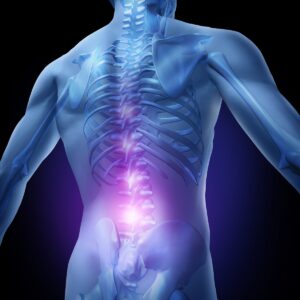LUMBAR FACET ARTHROPATHY

Lumbar facet arthropathy a condition that affects the facet joints of the spinal column in the lumbar region, located in the lower part of the back. These joints, also known as zygapophyseal joints, located at the back of the spinal column, allow for movement and stability between the vertebrae.
Lumbar facet arthropathy often develops as a result of natural wear and tear and aging of the facet joints due to continuous use and constant load-bearing. Injuries can also lead to its occurrence, arthritis, or other degenerative problems of the spinal column.
The most common symptoms of lumbar facet arthropathy include lower back pain that may radiate to the buttocks or legs, stiffness, difficulty in movement, and a sensation of locking in the back. These symptoms can vary in intensity and worsen with physical activity or movement.
Upon diagnosing lumbar facet arthropathy, neurosurgeons may recommend different treatment options depending on the severity of symptoms and the patient’s condition. Typically, the initial approach involves conservative treatment and includes measures such as physiotherapy, the use of pain and inflammation medications, as well as lifestyle changes such as weight loss and adopting proper posture.
In more severe cases or when conservative treatment does not alleviate the symptoms, neurosurgeons may consider more invasive options. Minimally invasive surgery presents an alternative and surgical procedures can accomplish decompression in the facet joints and relieve pressure on compressed nerves. This type of procedure often has faster recovery times and fewer complications compared to traditional open surgery.
In summary, this condition that affects the facet joints in the lumbar region of the spinal column. Neurosurgeons treat this condition using different approaches, ranging from conservative treatment to minimally invasive surgery. If you experience symptoms related to this condition, it’s important to seek medical attention to receive an accurate diagnosis and an appropriate treatment plan tailored to your specific situation.
Factors such as genetics and certain occupations can also contribute to the development of lumbar facet arthropathy. Early detection and prompt intervention can help manage symptoms and improve quality of life.
